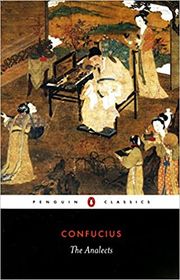The Analects of Confucius


The Analects of Confucius is a collection of teachings, conversations, and sayings of the Chinese philosopher Confucius and his disciples. This ancient text is one of the most influential and widely studied works of Confucianism, providing insight into the Chinese culture, society, and philosophy.
The book consists of 20 chapters, each containing a series of aphorisms or brief statements. The teachings in The Analects of Confucius cover a wide range of topics, including ethics, politics, education, and personal conduct. Many of the sayings are focused on the importance of cultivating virtues such as filial piety, respect for elders, honesty, and humility.
One of the central themes of The Analects is the concept of the Junzi, or the "superior man." Confucius believed that the Junzi was a person who embodied the highest moral and ethical standards, and who acted as a role model for others to follow. He also believed that education was the key to achieving this ideal, and that all individuals, regardless of social status or background, could strive to become a Junzi.
Another important theme in The Analects is the concept of the "Mandate of Heaven." Confucius believed that rulers were chosen by Heaven to govern the people, but that they also had a responsibility to govern justly and fairly. He stressed the importance of moral leadership and the need for rulers to prioritize the well-being of their subjects over their own self-interest.
The Analects also emphasizes the importance of proper conduct and etiquette. Confucius believed that proper behavior and manners were essential for maintaining social harmony and order. He placed a strong emphasis on the importance of respect for elders, and believed that individuals should always strive to be courteous and polite.
Overall, The Analects of Confucius provides a fascinating glimpse into ancient Chinese thought and culture. Its teachings have had a profound impact on Chinese philosophy, ethics, and society for over two millennia. The book's emphasis on moral conduct, respect for tradition, and the importance of education continue to resonate with readers today.
In conclusion, The Analects of Confucius is a must-read for anyone interested in philosophy, Chinese culture, or the history of ancient civilizations. Its teachings are both timeless and relevant, offering valuable insights into the nature of human behavior, leadership, and morality. Whether you are a scholar, a student, or simply a curious reader, this book is sure to enlighten and inspire.